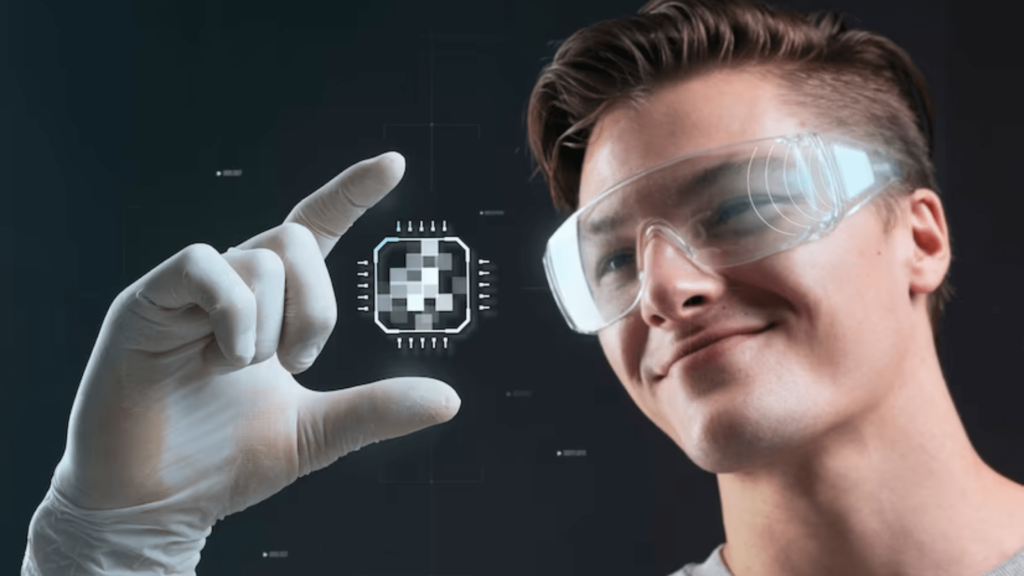The impact of artificial intelligence (AI) on the future of work remains uncertain, but it is undoubtedly one of today’s most vital technologies. AI has already integrated into our daily lives, influencing everything from the search results we see to our chances in online dating and even how we shop.
In the past four years, the use of AI in various commercial sectors has surged by 270 percent. The question is: What jobs will AI replace, and how will AI shape the job landscape in the future? Will it create a permanent underclass of individuals unable to find work because their jobs have been automated?
Related: What is NLP
Could super-intelligent computers potentially replace humans, rendering us obsolete? Will robotic assistants usher in a new era of human leisure and prosperity, or will they lead to peace and prosperity for humanity?
Artificial intelligence has evolved from a futuristic concept to an integral part of our daily lives. Over the last decade, AI has made remarkable strides, affecting not only the way we live but also the job market.
As we delve into the world of AI, it’s crucial to understand how it’s shaping the job market today and what trends we can anticipate for the future. To explore which jobs are most likely to be automated in the next 25–50 years, you can read more at What jobs will AI replace in the next 25-50 years?
AI’s Transformative Impact on the Job Market

In the evolving landscape of the job market, artificial intelligence (AI) plays a substantial role, as noted in the World Economic Forum’s “The Future of Jobs Report 2023.” The report anticipates that by 2025, AI will replace approximately 85 million jobs worldwide. But here’s the catch:
AI is also expected to generate about 97 million new job opportunities, ultimately leading to a positive net impact. However, it’s crucial to understand that the nature of jobs created by AI differs from those that might be displaced.
Nevertheless, jobs that require essentially human skills like creative problem-solving and empathy are less susceptible to immediate replacement by machines. These skills are indispensable in roles involving intricate decision-making and necessitating a human touch.
You May Like: Best and Most Secured VPN Services
The integration of AI technologies acts as a complement to human capabilities, enabling individuals to attain new heights of efficiency and effectiveness in their roles. This synergistic collaboration between humans and AI holds the potential to transform industries, drive innovation, and stimulate economic growth.
AI’s Impact Across Industries

The influence of artificial intelligence (AI) extends across various sectors, reshaping the way industries operate. More than half of the companies adopting AI-driven technologies claim an increase in productivity. Let’s explore how AI is significantly impacting a range of industries:
1. Finance: An Expanded Workforce
AI, symbolized by ATMs, did not diminish the number of bank tellers; instead, it resulted in the creation of more teller jobs. The convenience of cash machines attracted customers to banks, leading to the expansion of bank branches and the hiring of tellers to manage tasks that ATMs couldn’t perform.
2. Hospitality and Tourism: An Inclusive Approach
Innovations in the hospitality and tourism sectors include humanoid robots serving in Tokyo’s Dawn Avatar Robot Café. These robot waiters are operated by real people, including those with physical limitations, seniors, and single parents who need flexible work arrangements.
The robots act as avatars, controlled remotely via the internet through eye movements and gestures, providing new career opportunities for a diverse range of individuals.
3. Medical: Advancements in Diagnostics
AI is making significant inroads into the medical industry. With access to vast amounts of healthcare data, AI is used to create predictive models for medical scenarios. In some diagnostic cases, AI has demonstrated superior performance compared to physicians, such as in early lung cancer detection.
You May Like: How Artificial Intelligence changing Healthcare Industry
4. Automotive: Driving Automation
The automotive industry is already experiencing the impact of AI with the introduction of autonomous vehicles and self-navigating systems. AI plays a pivotal role in streamlining production processes, especially in automotive manufacturing.
5. Cybersecurity: Safeguarding Data
The ever-growing concern for cybersecurity is addressed by AI and machine learning technologies. They play a crucial role in identifying and anticipating threats by analyzing extensive data sets. AI is a valuable asset in the field of cybersecurity for preventing fraud and ensuring financial security.
6. Job Search: Enhancing Recruitment
AI has transformed the job search process, automating tasks like resume scanning and applicant tracking. AI tools are employed by employers for processing job applications, making recruitment more efficient and precise.
As AI and machine learning are on the rise, acquiring these skills is increasingly vital in today’s job market, with AI-related job opportunities projected to grow by 71% over the next five years.
What jobs are most likely to be Affected

In today’s rapidly evolving job market, several roles are at risk of being automated due to the growing influence of artificial intelligence. These positions often involve repetitive and routine tasks that can be efficiently handled by AI systems, reducing the need for human intervention. Here are some job categories that are particularly vulnerable to automation:
1. Customer Service Representative: Customer service interactions, which were once primarily handled by human employees via phone calls, have now transitioned to automated systems. Many customer inquiries are repetitive and don’t require high levels of emotional or social intelligence. AI technologies can effectively respond to frequently asked questions, improving efficiency in customer support.
2. Receptionists: The role of receptionists is also evolving with the integration of AI. Companies worldwide are increasingly using robots to manage reception tasks, including answering calls. Advanced AI systems like Aim Reception can interact with guests and customers, offering an efficient and automated approach to reception services.
3. Accountants/Bookkeepers: Automation and AI have made significant inroads into the field of accounting and bookkeeping. AI-powered bookkeeping services offer efficient and secure accounting processes, particularly as cloud-based solutions. AI algorithms ensure accurate data collection, storage, and analysis, often at a lower cost compared to traditional human bookkeepers. To learn more, please check out the business accounting course.
Related: How AI Can Improve Our Life
4. Salespeople: Traditional sales roles have seen a transformation due to the shift toward online and social media advertising. Targeted marketing capabilities within social media platforms allow businesses to create custom content for various audience segments, reducing the need for conventional salespeople.
5. Research and Analysis: The fields of data analysis and research have adopted artificial intelligence to streamline processes and extract insights from vast datasets. The processing power of modern computers enables efficient data sorting and analysis. As AI technology continues to advance, there is potential for a reduced human role in data analysis and research.
6. Warehouse Work: With the growth of online sales, warehouses are increasingly implementing automation and artificial intelligence. These technologies facilitate tasks such as locating packages and directing staff and may eventually handle mechanized retrieval and loading, enhancing shipping efficiency.
7. Insurance Underwriting: Automation plays a significant role in insurance underwriting by analyzing applicant data and applying predefined criteria. Automation can efficiently perform these tasks, potentially reducing the number of human underwriters required.
8. Retail: Retail automation includes the use of self-checkout stations in grocery stores and large retail outlets. While self-checkout can raise concerns about theft, it reduces the need for human cashiers, resulting in cost savings for businesses.
The Positive Impact of AI on the Job Market

AI brings a host of benefits to the job market, fostering productivity and creating new opportunities for workers. Let’s delve into these positive effects of AI and their relevance to the earlier discussions.
1. Boosted Productivity and Efficiency:
AI’s integration enhances productivity by assisting in handling repetitive and manual tasks. This, in turn, empowers human workers to channel their efforts into more complex challenges, ultimately making the workforce more efficient. AI equips employees to work smarter, accomplishing more within shorter timeframes.
2. Enhanced Business Revenue:
The increased efficiency resulting from AI adoption translates into enhanced overall business revenue. Employers can achieve more in less time, leading to improved profit margins. This additional profit can be invested in various areas, such as human resources, technological advancements, inventory, expansion initiatives, or increasing the workforce.
3. The Emergence of the AI Job Market:
Artificial intelligence is set to give rise to a new wave of job opportunities. These roles span a broad spectrum, from AI prompt engineers to machine learning engineers and automation experts. Much like the advent of computers spawned entire industries to support them, AI’s expansion is predicted to diversify the job market.
The focus will be on fostering technical skills and nurturing a workforce well-versed in AI technologies.
Conclusion
In summary of What jobs will AI replace, the impact of AI on the job market is a significant transformation, offering both challenges and opportunities. AI is expected to replace some jobs but also create new ones, particularly those requiring human skills like creativity and empathy.
It spans across industries, from finance to healthcare and cybersecurity, enhancing productivity and efficiency. As AI continues to evolve, it underscores the collaboration between humans and technology, promising innovation and growth in the job market.




